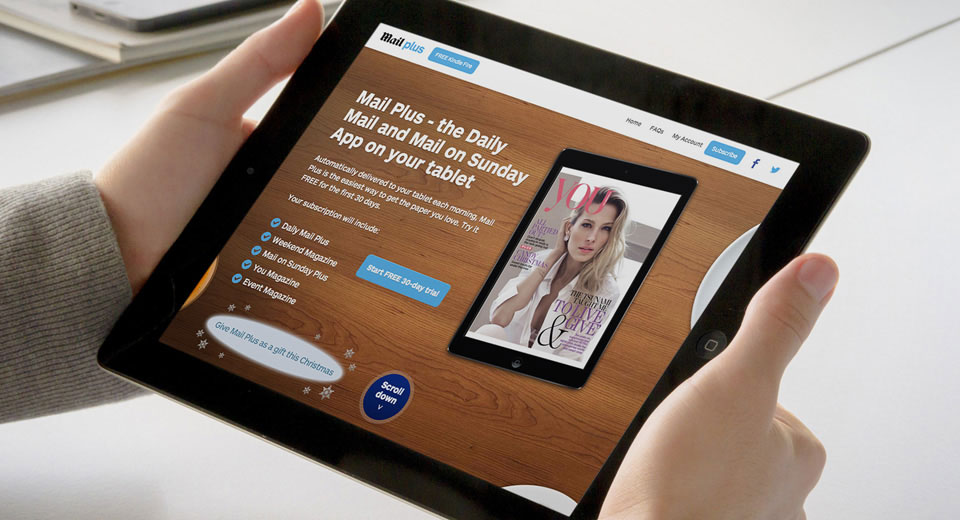Newsweek Heralds the Digital-only Age
Some folks were shocked and others not so much with the announcement from Newsweek CEO Tina Brown on Oct. 18. For casual news and magazine readers, the announcement that Newsweek would publish its last print edition on Dec. 31, 2012 – this news certainly was a shock.
For those of you who are avid news and magazine readers or are in the media and entertainment space – this news from the close to 80 year-old weekly magazine likely did not surprise you.
This move from print to digital and finally to an all-digital publication is one that has been whispered and speculated about for some time now for many magazines, newspapers and other print journals. The numbers and survey results are simply too hard to ignore.
Take a look at the numbers and stats coming from Newsweek:
- Newsweek’s revenue from print advertising dropped from $334 million from 2007 to 2011.
- The Daily Beast web site has more than 15 million unique visitors each month. This is a 20 per cent increase over the last year.
- Newsweek circulation hit a high of 3.3 million in 1991 and now hovers at 1.5 million.
- Newsweek has reported $40 million in annual losses.
- It costs $42 million to print and distribute Newsweek.
These are some startling numbers. Along with the recent turmoil at this news-magazine which has seen change of ownership, controversial cover and story choices, and the loss of key staff – the power of the online media and online readership cannot be ignored. Two years ago Newsweek purchased The Daily Beast and this enabled the magazine to capture new readers as well as for the head office to fully understand the potential of online readership and subscriptions.
In fact, Brown has said “…it was always going to happen,” of the move to digital and “It really has not been a question of if. It was a question of when.”
Circulation, print advertising revenue and publishing costs aside, decision-makers at Newsweek and other similar news organisation simply cannot ignore the rise and power of online readership. In fact a recent Pew Research Center survey, focusing on the changing news landscape, has revealed that only television exceeds online as a news source. Of the people surveyed, Yahoo, Google, CNN, local news and MSN were the top five online sources for news.
Which brings us around full circle to Newsweek. Brown has said that as of Dec. 31, 2012, Newsweek will no longer be available on store shelves. Instead readers will face a new reality for the ground-breaking news magazine on Jan. 1, 2013. Rebranded as Newsweek Global, readers will have to pay for online and tablet subscriptions. As is common with most newspapers and news magazines who have gone the digital subscription route, some content will be available for free – in the case of Newsweek this will enable it to maintain The Daily Beast website.
The good news for Newsweek is that it is not the first news organisation to do this. The decision-makers, journalists, and even graphic artists can learn from the mistakes and positives of the news organisations (New York Times, Wall Street Journal, Los Angeles Times, and soon the Chicago Tribune) who have already made the move to a digital paywall. One thing is clear from the experience of these newspapers is that readers will pay.
The early speculation was that readers would be turned off by digital paywalls and would turn to other sources for their news. Luckily for the early trendsetters, this has not been the case – in fact thanks in part to the digital paywalls, some newspapers have experienced an increase in readership. More and more people are learning that just because content is online doesn’t mean it should be free.
To be a success, Newsweek Global would benefit from remembering a few keys to business success:
- Stick with what you know. In other words – keep delivering solid content and articles – don’t change just because you’re online.
- Focus on quality. With quality content comes quantity – website visits will go up and subscriptions will be bought.
- Don’t panic. At first there will likely be some kind of backlash or people will be slow to pay – but once they realise that the content is still good and that the new medium meets their needs, they’ll be there.
- People are loyal. 80 years is a long time, there are lots of loyal readers out there – they will stay – just don’t forget these customers when trying to attract new ones.
In 2013, it will pay-off for Newsweek executives and staff to remember these words from Brown:
Newsweek Global, “… will be a single, worldwide edition targeted for a highly mobile, opinion-leading audience who want to learn about world events in a sophisticated manner.”
“Exiting print is an extremely difficult moment for all of us who love the romance of print and the unique weekly camaraderie of those hectic hours before close on Friday night. But as we head for the 80th anniversary of Newsweek next year we must sustain the journalism that gives the magazine its purpose – and embrace the all-digital future.”
“It is about the challenging economics of print publishing and distribution.”
 us
us 






 Posted by MPP Global on
Posted by MPP Global on


